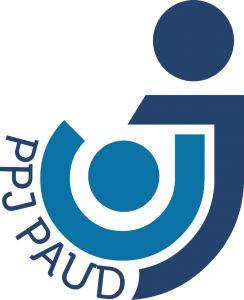PENGARUH PENGENALAN PERILAKU HIDUP BERSIH DAN SEHAT (PHBS) TERHADAP KESEHATAN ANAK USIA DINI DI MASA PANDEMI COVID-19
DOI:
https://doi.org/10.30736/jce.v5i1.506Keywords:
Clean and healthy lifestyle, Children's Health,Abstract
Abstract This study aims to determine the effect of distance learning This study aims to: 1) introduce the 7 steps to wash hands properly in group B TK Dharma Wanita Watualang 1 Ngawi. 2) knowing the problems in the physical aspects of motoric 7 steps washing hands in group B TK Dharma Wanita Watualang 1 Ngawi. The research used is quantitative research. The subjects of this study were children of group B TK Dharma Wanita Watualang 1 Ngawi, with a total of 23 students. Data collection methods used in this study are observation and documentation. This research was conducted using a One-Group Pre-Test Post-Test model consisting of a Pre-Test (before being given treatment) and Post-Test (after being given treatment). Furthermore, based on the results of research based on data analysis, it was found that there was an increase in the average score of the physical motor skills of group B children before and after being given the treatment, namely from 47.8 to 63.86. Furthermore, from the results of the calculation of the t-test formula for a small sample that is interconnected in this study, it shows that tcount> ttable (7.7> 1.7), with a significance level of 5%. Based on the results of the study, the authors conclude that there is an effect of the introduction of clean and healthy living behaviors (PHBS) on children's health during the COVID-19 pandemic group B TK Dharma Wanita Watualang 1 Ngawi.References
Arikunto, S. (2010). Prosedur penelitian suatu praktik. Rineka Cipta.
Azizah, El. N., Tanto, O. D., Naningtias, S. A., & Rahmawati, R. U. (2020). Indonesian Journal of Community Engagement (IJCE) LPPM-STKIP Modern Ngawi. Indonesian Journal of Community Engagement (IJCE), 2(1), 14–19.
Darwati, Wijayanti, A., & Azizah, E. N. (2019). Peningkatan Kemampuan Motorik Anak Usia 3-4 Tahun Melalui Kegiatan Fun Cooking. Jurnal Ilmiah Pendidikan Citra Bakti, 6(2). https://doi.org/10.5281/zenodo.3551669
Fitria, A. (2018). Penggunaan Media Audio Visual Dalam Pembelajaran Anak Usia Dini. Cakrawala Dini: Jurnal Pendidikan Anak Usia Dini, 5(2), 57–62. https://doi.org/10.17509/cd.v5i2.10498
Hurlock, E. B. (1980). Psikologi Perkembangan. Erlangga.
Julianti, R., Drs. H. M Nasirun, M. P., & Wembrayarli, S.Pd., M. S. (2018). Pelaksanaan PHBS Di Lingkungan Sekolah. Ilmiah Potensia, 3(2), 11–17. https://ejournal.unib.ac.id/index.php/potensia/article/view/2960/2681%0Ahttps://journal.unnes.ac.id/sju/index.php/ujph/article/view/5969%0Ahttps://ejournal.unsrat.ac.id/index.php/JKKT/article/view/7778/7341
Kementerian Pendidikan Nasional. (2014). Permendikbud No 146 Tahun 2014. ببب, 8(33), 37. http://paud.kemdikbud.go.id/wp-content/uploads/2016/04/Permendikbud-146-Tahun-2014.pdf
Madanih, R., Anjari, S. D., & Mutholib, A. (2019). Penyuluhan Perilaku Hidup Bersih Dan Sehat (Phbs) Dengan 7 Langkah Cara Mencuci Tangan Yang Efektif Di Sekolah Paud Mawar Kelurahan Sawah Baru, Ciputat , Tanggerang Selatan. Prosiding Seminar Nasional Pengabdian Masyarakat LPPM UMJ, September. https://jurnal.umj.ac.id/index.php/semnaskat/article/view/5416
MENTERI PENDIDIKAN DAN KEBUDAYAAN REPUBLIK INDONESIA. (2014). Standar Nasional Pendidikan Anak Usia Dini. Peraturan Menteri Pendidikan Dan Kebudayaan Republik Indonesia, 13.
Notoatmodjo. (2010). Metodologi Penelitian Kesehatan. Rineka Cipta.
Saifuddin, A. (2008). Realibilitas dan Validitas. Pustaka Belajar.
Sugiyono. (2011). Metode Penelitian Pendidikan Pendekatan Kuantitatif, Kualitatif dan R&D. 148.
Suryani, D., Nurdjanah, E. P., Yogatama, Y., & Jumadil, M. (2019). Membudayakan Hidup Sehat Melalui Gerakan Masyarakat Hidup Sehat (Germas) Di Dusun Mendang Iii, Jambu Dan Jrakah Kecamatan, Tanjungsari, Gunungkidul. Jurnal Pemberdayaan: Publikasi Hasil Pengabdian Kepada Masyarakat, 2(1), 65. https://doi.org/10.12928/jp.v2i1.486
Wijayanti, A. (2019). Pengembangan Permainan Maze Tiga Dimensi Pada Kemampuan Motorik Kasar Kelompok B Di Tk Pgri I Jogorogo Ngawi. Jurnal Pendidikan Modern, 4(3), 18–27. https://doi.org/10.37471/jpm.v4i3.10
Downloads
Published
How to Cite
Issue
Section
License
Please find the rights and licenses in JCE (Journal of Childhood Education). By submitting the article/manuscript of the article, the author(s) agree with this policy. No specific document sign-off is required.
1. License
Use of articles will be governed by the Creative Commons Attribution - ShareAlike license as currently displayed on Creative Commons Attribution-ShareAlike 4.0 International License.
2. Author(s)' Warranties
The author warrants that the article is original, written by stated author(s), has not been published before, contains no unlawful statements, does not infringe the rights of others, is subject to copyright that is vested exclusively in the author and free of any third party rights, and that any necessary written permissions to quote from other sources have been obtained by the author(s).
3. User Rights
JCE (Journal of Childhood Education)'s spirit is to disseminate articles published are as free as possible but there is a little payment for publication. Under the Creative Commons license, JCE (Journal of Childhood Education) permits users to copy, distribute, display, and perform the work for commercial purposes. Users will also need to attribute authors and JCE (Journal of Childhood Education) on distributing works in the journal and other media of publications.
4. Co-Authorship
If the article was jointly prepared by more than one author, any authors submitting the manuscript warrants that he/she has been authorized by all co-authors to be agreed on this copyright and license notice (agreement) on their behalf, and agrees to inform his/her co-authors of the terms of this policy. JCE (Journal of Childhood Education) will not be held liable for anything that may arise due to the author(s) internal dispute. JCE (Journal of Childhood Education) will only communicate with the corresponding author.
5. Miscellaneous
JCE (Journal of Childhood Education) will publish the article (or have it published) in the journal if the article’s editorial process is successfully completed. JCE (Journal of Childhood Education)'s editors may modify the article to a style of punctuation, spelling, capitalization, referencing and usage that deems appropriate. The author acknowledges that the article may be published so that it will be publicly accessible and such access will be free of charge for the readers as mentioned in point 3.
JCE (Journal of Childhood Education) by Universitas Islam Lamongan is licensed under a Creative Commons Attribution-ShareAlike 4.0 International License.Based on a work at http://journalfai.unisla.ac.id/index.php/jce.













